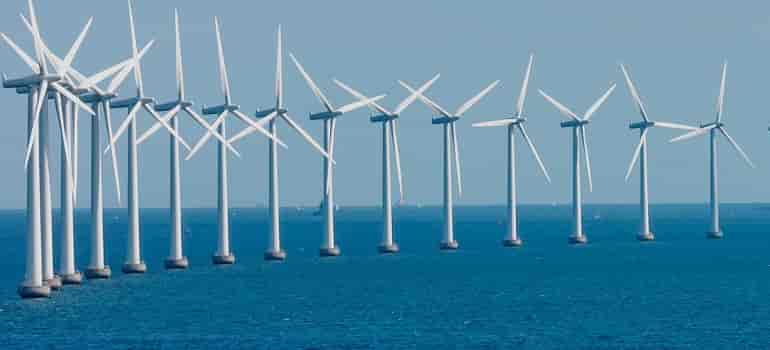Ambitious offshore wind target promises jobs, investment, but slow permitting threatens progress.
South Korea’s ambitious plan to install 14.3 gigawatts of offshore wind power by 2030 could create a clean energy bonanza, revitalizing coastal communities and generating billions of dollars in investments, according to a new report by the Global Wind Energy Council (GWEC).
The report, titled “How Offshore Wind Development Can Support Coastal Regeneration,” highlights the potential for over 770,000 jobs across various skill levels and an estimated 87 trillion won (US$70 billion) in economic investment over seven years. However, the report also warns that slow permitting processes, which can take up to a decade, pose a significant threat to achieving these goals.
“Offshore wind is a good news story for South Korea,” said Rebecca Williams, Global Head of Offshore Wind at GWEC. “Our report shows that 14.3GW of offshore wind can create a huge energy and economic opportunity, revitalizing coastal communities across the country.”
Currently, only 150 megawatts of the targeted capacity has been installed. Streamlining the permitting process, which the proposed Offshore Wind Power Promotion Act aims to achieve, is crucial to unlocking this potential.
The report emphasizes building local support for offshore wind projects. Engaging with communities early on and fostering trust with the fishing industry are key aspects. GWEC recommends a roadmap for collaboration with fisheries, outlining practical steps to ensure coexistence between wind farms and fishing activities.
“Fishermen worry about the potential loss of livelihood due to offshore wind development,” said Cho Kong-jang, Director General of Sustainability Strategy Research Group at the Korea Environment Institute. “However, it is possible for fisheries and offshore wind farms to coexist.”
The report highlights successful international case studies and encourages South Korea to learn from existing examples. Public-private councils and regional wind master plans are recommended to prioritize community-focused development.
GWEC’s report serves as a call to action for South Korean policymakers. By addressing permitting delays and fostering collaboration with stakeholders, South Korea can unlock the vast potential of offshore wind and achieve its clean energy goals while revitalizing coastal communities.


